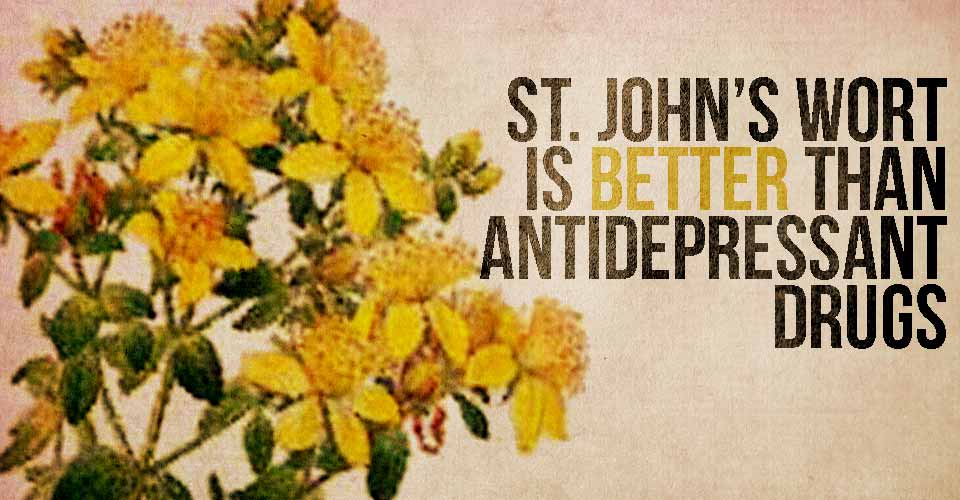The popular herbal extract St. John’s wort is more effective at treating the symptoms of depression than any antidepressant drug, and has fewer side effects, researchers from the Centre for Complementary Medicine in Munich have concluded.
“Overall, the St John’s Wort extracts tested in the trials were superior to placebo, similarly effective as standard anti-depressants, and had fewer side effects than standard anti-depressants,” lead researcher Klaus Linde said.
In a study published by the Cochrane Library, the researchers tested a total of 5,489 participants who were randomly assigned either St. John’s wort, a placebo, tricylclic antidepressants or selective serotonin reuptake inhibitors (SSRIs) to treat mild to moderately severe depression. All studies were double-blind, which means that neither patients nor researchers knew what kind of treatment each participant was receiving.
St. John’s wort was found to be more effective than a placebo and at least as effective as both tricylics and the SSRIs, but with fewer side effects. Patients receiving the herbal treatment were significantly less likely to drop out of studies due to negative side effects than those assigned to take tricyclic antidepressants.
The study is claimed to be the most thorough to date, and possibly the first to show that St. John’s wort is effective at treating not only mild, but also severe depression (also known as major depression).
St. John’s wort, known officially as Hypericum perforatum, is a native European perennial herb with distinctive yellow flowers and now grows wild in many parts of the Americas as well. It derives its common name from the tradition of harvesting its flowers on St. John’s day (June 24). Also known as Klamath weed or Tipton’s weed, the plant has been used for centuries as an herbal remedy for depression and sleeping problems.
In recent years, the popularity of the herbal antidepressant has soared as new concerns continue to emerge over pharmaceutical antidepressants, especially SSRIs. In the United Kingdom, it is currently used by two million people. In Germany, doctors regularly prescribe it to children and teenagers. This is because SSRIs have been shown to significantly increase the risk of suicide in those under the age of 18, and evidence suggests that they may have a similar effect on adults, as well. Recent evidence has also linked use of the drugs by pregnant women with an elevated risk of oral and heart-related birth defects.
With Western health care systems emphasizing drugs for the treatment of mental illness, however, many doctors feel they have no alternatives but to prescribe tricyclics or SSRIs, in spite of the risk. The new study may lead more doctors to prescribe St. John’s wort instead.
Possessing a number of active ingredients, including hypericin and hyperforum, it appears to affect mood, although nobody knows precisely how. So far, the most plausible explanation is that it boosts and maintains levels of the feel good hormone serotonin in the brain.
‘It also has risks,’ says pharmacist Helen Marshall. ‘It can interfere with the effectiveness of drugs including cholesterol-lowering medications and the contraceptive pill, and increases the risk of stroke for anyone on blood-thinning drugs or anti-depressants.’
Of course the quality of products varies considerably. In shops capsules, tablets, tinctures, teas and oil-based skin lotions are available. Be careful which you choose. In clinical trials, only products standardised to contain 0.3% hypericin have been proven effective and doses of 300mg are considered optimal. Many do find that cheerfulness is restored after two to four weeks, with none of the side-effects of prescription drugs.
If you find the right one and take it responsibly then you may really have found yourself a safe and healthy happy pill to see you through to the brighter side of life.



